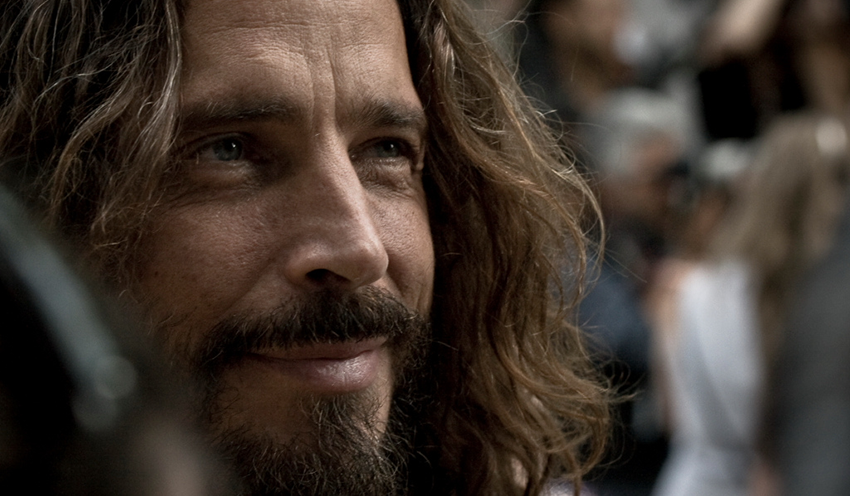This week, we lost a brilliant artist to an unexpected death. Chris Cornell’s death is hitting me harder than I might have expected. I’ve lived in Seattle my whole life. I remember coming of age in the 90s when the “Seattle Sound” was at its zenith. I jokingly tell people I still bleed flannel and angst. What’s more, Chris and his then-wife Susan lived in my neighborhood, and – while I didn’t know them personally, and they certainly wouldn’t remember me – I occasionally encountered them in passing and exchanged a friendly nod, or helped them if they came into one of the local stores where I worked. Despite our lack of personal connection, he managed to have an impact on me and countless others.
“But I shouldn’t feel this way!”
Aside from my hope that his family and friends can find some peace and healing in this difficult time, I found myself a little puzzled at the intensity at which I was feeling his loss. This serves as a reminder that feelings, and particularly grief, can happen unexpectedly and take unexpected forms. Why should I feel any sense of loss? It’s not like we were friends, right? When I sat with the feeling for a bit, I realized that he remains an artist whose work I admire, he was part of a cultural movement that helped define my formative years, and he was a physical presence within my community. When stated that way, it makes a bit more sense to me that I feel what I feel: a little loss and sorrow. Your feelings are okay, too
There is no “should” or “shouldn’t” when it comes to feelings, especially grief. I’ve said this before, but feelings are just indicators of something. We might not always know at the time what they are trying to indicate, but it’s something. One of the ways people run into problems is when they try to deny or ignore their feelings by saying they, “shouldn’t feel like this.” That’s when our feelings can come out in unexpected ways.
How Do I Handle It?
The question of how to handle feelings (especially grief and loss) is something that comes up a lot with the people I work with. Here are a few tips:
- Compassionately tell yourself, “It’s okay to feel whatever I feel,” and then honestly acknowledge it, even if you believe the feeling might be a little irrational.
- Redefine what it is to “handle” feelings. Sometimes feelings are painful, and people sometimes falsely believe that feeling emotional pain means they’re not handling things. Quite the contrary. “Handling it” often means honestly experiencing the painful feelings with the acknowledgment, “This is awful and I will still get through it.”
- Feelings are just that: feelings. You don’t have to act on them. That said…
- Consider if your feelings are so intense that they are interfering with your daily life. If you’re not able to work, socialize, or do the normal stuff of everyday living, that’s a big red flag that something serious might be going on.
- Try to sit with your feelings to figure out what they are trying to tell you.
- If you find yourself perplexed about what you’re feeling and why, seek out a trusted friend or even a mental health professional. A good mental health professional is a great way to sort out unresolved or confusing feelings.
Another thing: if you’re feeling hopeless, that’s a HUGE red flag, and it might be an indicator of something bigger. I might be a little biased, but I always think people should seek out a mental health professional if they find themselves in a crisis or feeling hopeless for any length of time. A great crisis resource is the National Suicide Prevention Lifeline (1-800-273-8255 – suicideprevention.org). They work with all emotional crises, and not just suicide. That said, if you or someone else is in immediate danger, call 9-1-1 or your local emergency number.
Ultimately feelings (especially grief and loss) matter, and they’re trying to tell us something. We just need to figure out what they’re telling us.
Also, I have yet to meet a person who didn’t have someone who had their back, even if they couldn’t see it at the time. No matter what you’re feeling, remember you’re not alone.
This article is not a substitute for medical advice or professional counseling. While we at Take This want to provide you with resources, we do not recommend or endorse any particular site, treatment, therapy, or resource. We provide these links at our sole discretion but have not necessarily vetted or reviewed any particular resource. We assume no liability for the use of the information or resources on these sites and encourage you to use your own best judgment when reviewing these resources.
If you live in the US and you’re having suicidal thoughts, reach out to the Suicide & Crisis Lifeline or call/text 988. If you’re outside the US, you can find local crisis lines at Suicide.org. If you’re even debating whether you should call them, you should call them. The Suicide & Crisis Lifeline handles all psychological crises, not just suicide.

